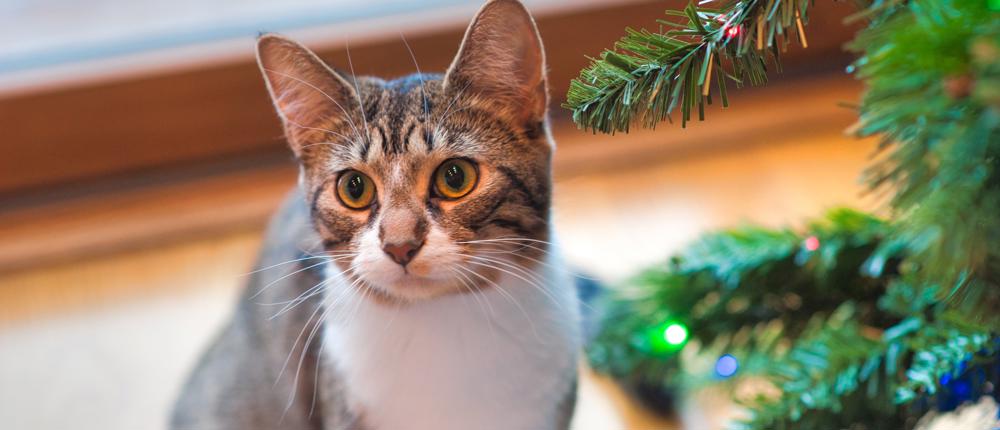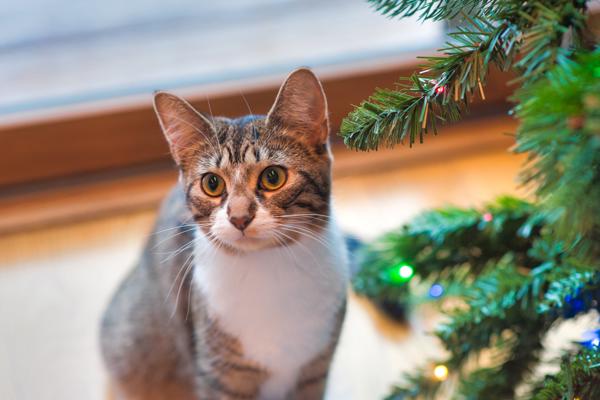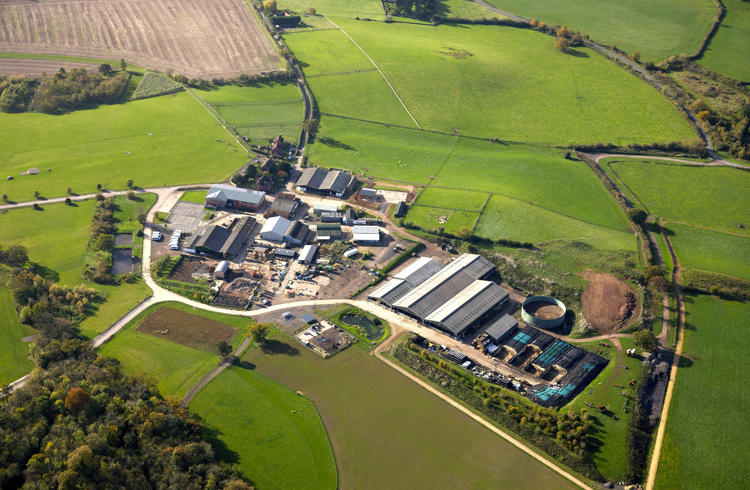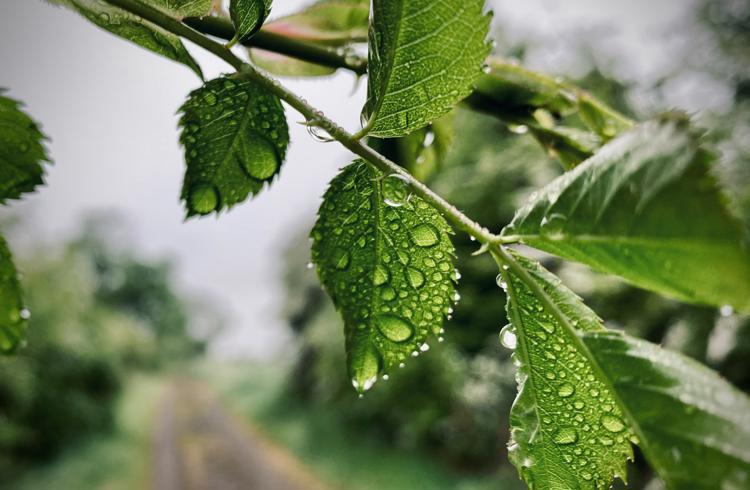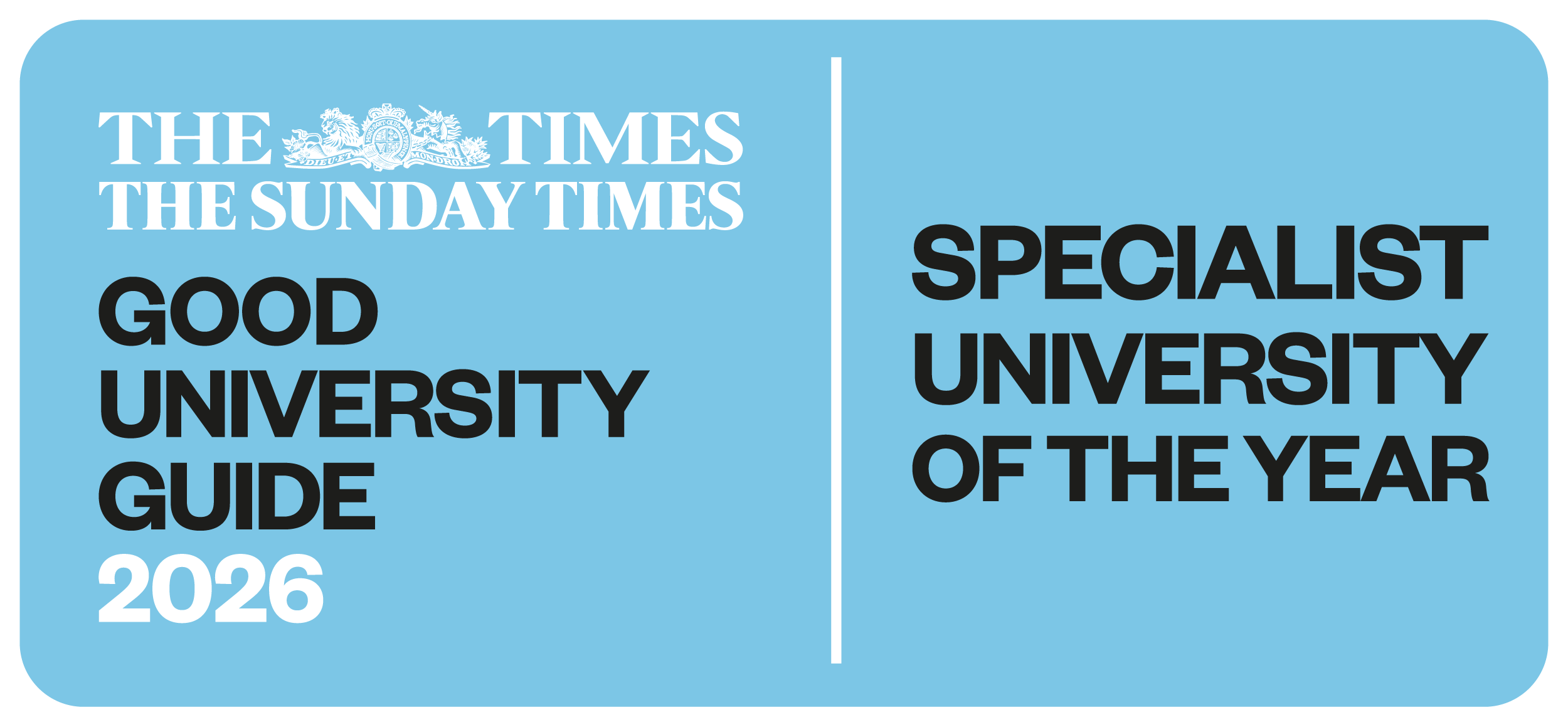The holiday season brings joy and festivities that can sometimes pose a risk to the safety and wellbeing of pets and wildlife. As you decorate your home, host gatherings and participate in seasonal activities, it's important to be mindful of the potential hazards that can affect our beloved pets and the wildlife around us.
By taking proactive measures and staying informed, you can ensure that both pets and wildlife are protected throughout the festivities.
Heather Graham, Animal Collection Manager at Hartpury University and Hartpury College has offered some helpful tips and advice.
Decorations and plants
Christmas decorations, such as tinsel, ornaments, and lights, can be appealing to pets but also pose a danger if ingested. Tinsel, in particular, can cause serious harm if consumed by cats or dogs, as it can lead to internal blockages. To mitigate this risk, consider using pet-friendly decorations or keeping delicate items out of reach of your pets.
Additionally, certain holiday plants, such as poinsettias, mistletoe, and holly, are toxic to pets if ingested. Keep these plants in areas that are inaccessible to your pets, and be mindful of fallen leaves or berries that may be within their reach. Consider using artificial alternatives or placing natural plants in areas that are off-limits to your pets.
If you have a Christmas tree, secure it properly to prevent it from toppling over if a curious pet investigates the ornaments. Additionally, ensure that tree water additives or preservatives are not accessible to pets, as they can be harmful if consumed.
Festive Foods
The holiday season often involves indulging in special treats and feasts. However, many of the foods enjoyed by humans can be harmful to pets.
Chocolate, raisins, grapes, onions, garlic, and foods high in fat can all be toxic to cats and dogs. Be mindful of where these foods are placed and ensure that they are safely stored away from your pets.
If you're hosting gatherings, remind your guests to refrain from feeding table scraps to pets, as this can lead to digestive issues or even poisonings. Consider providing pet-friendly treats or chews that can be offered to your furry companions as a safe alternative.
Heather explains: “Whenever we implement a new diet to animals, we always do this gradually over a number of weeks. However, at Christmas new and different foods are often fed quickly and in larger amounts, increasing the chances of a digestive upset.
“It’s not all bad news. You can still treat your pet, but it’s important to do your research to ensure the food is safe for them to eat. You should also nearly always give only a small amount and monitor the individual both physically and behaviourally.”
Leftovers, wildlife and pets
When disposing of leftover food, ensure that waste is left in a secure box or bin so that wildlife such as foxes cannot break into while you are waiting for the bins to be collected. Animals such as foxes, cats and dogs, have significantly better sense of smell than humans, in fact it can be up to 14 times better than ours! This means they can smell your leftover turkey bones from over a mile away, depending on the wind direction. Turkey carcasses may seem like a great treat for your neighbourhood fox but the cooked bones can cause a great deal of internal damage if consumed. As bones go through the cooking process they become brittle and sharp, this can cause potential trauma to the digestive tract as it passes through. Foxes also often ‘cache’ food, which means they will hide or bury spare food in a number of locations that they can come back to when they need it.
Unfortunately, your dogs and cats often find these caches and can consume the food which could contain mould, cooked bones or toxic properties, so be extra vigilant when walking your dogs in built up areas around the festive period.
Fireworks and noise
Fireworks are a common feature of many holiday celebrations, and their loud noises and bright lights can be distressing to pets. If you are planning to set off fireworks or live in an area where they are prevalent during the holiday season, take measures to ensure that your pets are secure and comfortable.
Create a safe space for your pets in a quiet, indoor area where they can retreat to and feel secure. This can be a good idea, not just to protect against firework noise, but also to help pets feel safe when the house is full of guests or music may be playing. Some pets may benefit from the use of products such as calming pheromone diffusers or wraps designed to reduce anxiety.
It's also important to ensure that your pets are wearing proper identification, such as collars with ID tags or microchips, in case they become frightened and bolt in response to the fireworks.
Outdoor considerations
As the weather becomes colder, it's essential to take additional precautions when it comes to outdoor pets and wildlife. If you have outdoor pets, provide them with adequate shelter and bedding to keep them warm and protected from the elements. Ensure that their water supply remains unfrozen and that they have a source of warmth, especially during frigid temperatures.
Heather adds: “In our Hartpury animal collection we move water bowls and bottles inside enclosures so they do not freeze and the animals still have access to water. We carefully monitor our species’ weight, especially over the winter period as they will use a lot of energy to stay warm and food intake may need to be increased accordingly. We monitor the weather and increase the amount of bedding materials our species have to help insulate their sleeping areas. For example, some of our exotic mammals will have blankets and straw to help keep them warm and plastic hiding places are changed for wooden alternatives.”
When it comes to wildlife, be mindful of their needs in the winter months. Refrain from using harmful chemicals or substances to de-ice sidewalks or driveways, as these can be harmful to wildlife that may come into contact with them. If you have bird feeders, ensure that they are kept filled with a stock of seeds during the winter months, as natural food sources become scarce.
Staying informed and vigilant
This key to keeping pets and wildlife safe over Christmas and throughout the holiday season. Familiarise yourself with common holiday hazards for pets and take proactive steps to minimise the risks. Consider researching the specific needs of wildlife in your area and making accommodations to support their wellbeing during the winter months.
Educating friends and family members about the potential risks to pets and wildlife can also help ensure that everyone is mindful of their impact on animals during the holiday season. By spreading awareness and sharing information about responsible pet ownership and wildlife conservation, you can contribute to a safer and more harmonious holiday season for all creatures.
Hartpury’s animal collection
Home to a variety of domestic and non-domestic species including small mammals, reptiles, livestock and exotics, Hartpury Animal provides college and university students with an opportunity to better understand the biology and behaviour of each. This helps bring learning to life and helps prepare students for their future careers.
The Animal collection helps with outreach activities such as school visits, inspiring the next generation to pursue their love of animals. Spending time around animals is also proven to have a positive impact on mental health and wellbeing.
In October, Hartpury Animal was granted the Animal Activities Licence (AAL) for ‘Keeping or Training Animals for Exhibition’ by the Forest of Dean council. The certification confirms Hartpury’s commitment to the highest standards of animal care and welfare, and was awarded following scrupulous documentation and an inspection of the animal collection and its policies. The licence will remain in place for a period of three years and recognises that the expected standards of animal welfare and health and safety are met.

